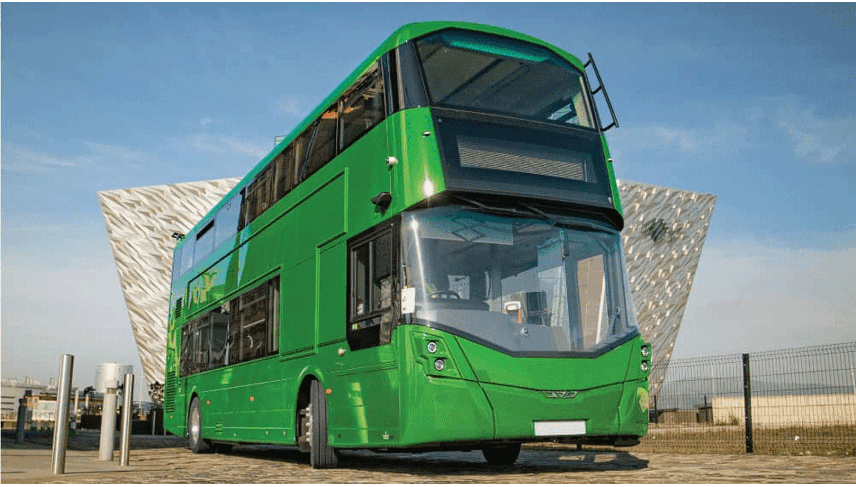Register for free and continue reading
Join our growing army of changemakers and get unlimited access to our premium content

Image: Wrightbus
The funding pot comprises some £38.4m from public coffers and a further £38.7m from players in the automotive industry.
Ford is taking the biggest share of the funding, with £16.3m for its work to design and develop a hydrogen-powered version of its iconic Ford Transit van. Ford is working with powertrain specialist AVL on the project, which will see the vans produced at its factory in Dagenham in the first instance.
Other partners on the Ford project include Ocado and BP.
More than half of the £77m funding pot is being allocated towards hydrogen vehicle projects. Also benefitting, with a £7.9m share, is Ulemco, which is developing a hydrogen fuel cell range extender that could be applied in vehicles like fire engines and ambulances.
Elsewhere, Bramble energy is developing a hybrid powertrain for double-decker buses, combining hydrogen fuel cells with electric vehicle (EV) technologies to cut costs and extend ranges. Wrightbus is also bagging a £12.7m share of the funding.
In the EV space, Jaguar Land Rover will receive £12.6m to develop next-generation inverters. Inverters are the devices that converts DC power to AC power used in an EV motor. Inverter supply chains have been disrupted heavily in the 2020s, and the Government and industry have stated a desire to bolster domestic production as a future-proofing solution.
The funding has been awarded through the Advanced Propulsion Centre’s (APC) Collaborative Research and Development programme.
Industry and Economic Security Minister Nus Ghani MP said the funding boost will help UK companies to “stay ahead of the competition” on zero-emission vehicles, while supporting jobs. The Government estimates that the funding announced today has created or safeguarded more than 4,400 jobs.
Ghani added: “Zero-emission cars, vans and taxis are increasingly common, but this cutting-edge work is going to mean clean, green vehicles designed and built in the UK can increasingly take on the toughest jobs too, from life-saving emergency services, to haulage and public transport.”
The UK Government is to ban the sale of new petrol and diesel cars and vans from 2030. Through to 2040, the sale of new HGVs with internal combustion engines (ICEs) will be phased out. Transport has been the UK’s highest-emitting sector since 2016 and road transport accounts for the biggest share of its climate impact.


Please login or Register to leave a comment.